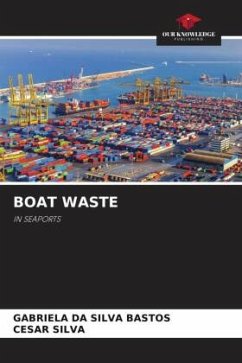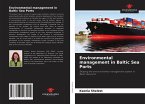Global trade logistics is intrinsically linked to countries' ability to ship and receive a wide variety of products. Ports, especially maritime ports, are an excellent transport route, receiving millions of tons of materials such as fuel, food, electronic products, clothing, etc. However, during the movement of consumer goods, many types of waste are generated and require strategic management in order to protect terrestrial and aquatic ecosystems from any type of contamination. Thus, the management of shipboard waste in seaports is essential to mitigate environmental impacts due to the receipt, transportation, packaging and final disposal of this waste, since many of them are classified as hazardous.
Bitte wählen Sie Ihr Anliegen aus.
Rechnungen
Retourenschein anfordern
Bestellstatus
Storno








